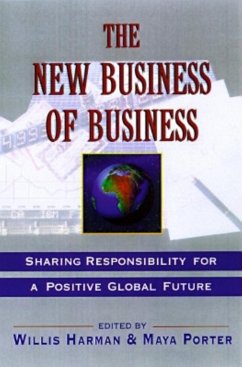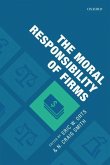"The business of business is business!" For many years, this credo, articulated by General Motors President Alfred T. Sloan, Jr., in 1923, has justified virtually every decision made in the business world. Especially in the United States, there was little doubt that the function of the private sector was to provide for the needs of society and to generate wealth. Other matters would be dealt with by public-sector bodies and agencies. To be sure, corporations were called upon to assume a reasonable degree of social responsibility, and the work environment was to be less regimented than in the past, and more encouraging of self-actualization. But both of these were subject to, and to an extent justified by, improvement in the financial bottom line. But as the world rushes toward the end of the millennium, many people see increasing signs that some sort of fundamental change is taking place. Some trends are clearly with us and generally assumed to be positive-globalization of the economy, continued economic growth, spreading democratization, accelerating technological advance, burgeoning global communication. Other trends are less positive and are, so far, unyielding to remedial efforts-increasing inequality, progressive destruction of the natural environment, increasing concentration of power and wealth, rising unemployment and underemployment together with "jobless growth." Meanwhile, there is spreading talk of a "new paradigm" in the business world, and behind that of emergence of a new worldview. This new world view mandates that we transcend the traditional view of the role of business. Since 1992, the World Business Academy has published an impressive number of articles aimed at exploring aspects of this emerging "new paradigm" in its quarterly journal Perspectives on Business and Global Change. This edited volume collects twenty-one of these essays from some of today's finest thinkers in the area of business and global change, and stimulates dialogue and debate on the future of business. Their contributions address a broad range of difficult issues-from corporate accountability and money's demise to the spiritual poverty of business-and pose such challenging questions as: What is sustainable change? Is progress possible? What is wise leadership? Business people in decision-making positions who can influence the way their companies affect the world-executives, managers, financial officers, investors, consultants, business professors, and government policy makers-will want to reflect on these cutting edge essays. Far-reaching in scope, these insightful contributions from important thinkers will appeal to all those who seek a broader understanding of current global socio-economic trends.
Hinweis: Dieser Artikel kann nur an eine deutsche Lieferadresse ausgeliefert werden.
Hinweis: Dieser Artikel kann nur an eine deutsche Lieferadresse ausgeliefert werden.








